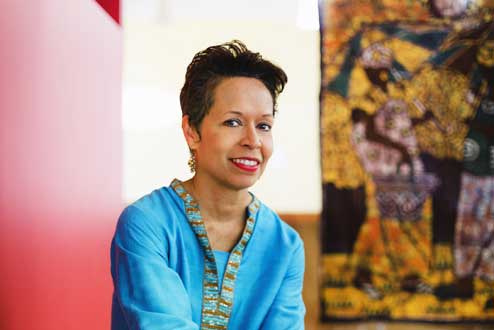 The Wellesley Centers for Women is mourning the death of Deborah Holmes, Chair of the WCW Council of Advisors and a passionate activist committed to the lives of women, people of color, equity, and social justice across the world.
The Wellesley Centers for Women is mourning the death of Deborah Holmes, Chair of the WCW Council of Advisors and a passionate activist committed to the lives of women, people of color, equity, and social justice across the world.
“Deborah understood the intersectionality of social justice causes as well as the necessity of making change on multiple fronts at once, and she lived it,” reflected Layli Maparyan, Ph.D., the Katherine Stone Kaufmann ’67 Executive Director of WCW. “She brought indefatigable energy and an indomitable spirit to our Council of Advisors, and our global outreach and media impact expanded under her influence.”
Last spring, WCW cosponsored a research forum for change makers, “From Persistence to Power: Facts, Truth & Equity for Women,” in Washington, D.C., during which Deborah spoke about the need to address issues of intersectionality in order to achieve equity for all women in the U.S.
“It is hard to be black every day in America; but at the same time, I love being black. Because we have so much power, and the fact that we are in this room, and in this place, and still strong, and nobody has knocked us down, says a lot about our people,” she told the hundreds of attendees. “We are at a moment now where we have an opportunity, perhaps in coalition with other black and brown folk, to really rise up in a way that we rose up when we shut down the buses in Montgomery, when we forced people to listen to what we have to say.”
At the time of her death, Deborah was the Chief Communications and Engagement Officer at the Women's Funding Network (WFN), one of the world's largest philanthropic networks devoted exclusively to the equality and rights of women and girls around the world. There, she oversaw external and internal communications, brand and reputation management, strategic partnerships, and member relations. Prior to WFN, Deborah served as Chief of Staff and Vice President of Communications at the Global Fund for Women (GFW), where she was senior advisor to the CEO and charged with the development and execution of GFW's mission, vision, and strategies. Additionally, she was responsible for nurturing key organizational relationships and initiatives, enhancing staff and board capacity to steward the GFW brand, talent management, and human resources.
"No one met Deborah Holmes and was not immediately impressed,” said colleague Deborah Richardson, Herndon Human Rights Expert in Residence at Honors College, Georgia State University. “She wore her confidence and brilliance well, while openly embracing you as a fellow sister and comrade. Every moment of her life was purposeful—her yes meant yes. If she committed to something, she was all in. What I learned from Deborah is we have to do more. Speak out more. Confront injustices more and love each other more. Those who had the privileged of working with her, and the thousands she felt a deep responsibility to—we are all blessed by her many gifts.”
An award winning television news correspondent and analyst for more than 30 years, Deborah worked for local, national, and international news organizations covering an array of issues including race, politics, and social justice. She addressed the importance of quality journalism during the D.C. conference.
“Backing down is no longer an option,” she argued. “The facts matter and we have to get the facts into the right hands of the people—and that includes your friends and associates who need to read and use critical thinking skills. Because there are facts out there. But if you choose not to read them, or you ignore them, then they are of no benefit to anybody. Losing first-rate investigative journalism,” she stressed, “is one of the worst things that can happen in this democracy.”
Prior to her work in women's rights, Deborah was Senior Vice President at a global communications firm, Fleishman Hillard, Inc., where she led client strategy in brand and reputation management, healthcare, and multicultural audience development and initiatives. She was an outspoken activist for issues impacting people of the African diaspora including racial equity and economic and political empowerment. Throughout her career, she promoted and facilitated opportunities that brought diverse voices into public discourse and debate to inform social change.
“This [work] takes time, and so you have to make a commitment within yourself and among your friends that you are going to devote some actual time to this in addition to the knowledge, but we have to show up,” Deborah said.
In addition to her service on the WCW Council of Advisors, Deborah’s board and community service included Global Press Institute, Change Philanthropy Partners, Bay Area Blacks in Philanthropy, Reporters Without Borders, and Alvin Ailey American Dance Theater.
Family, friends, and colleagues are welcome to share their reflections in the Comment Section below.



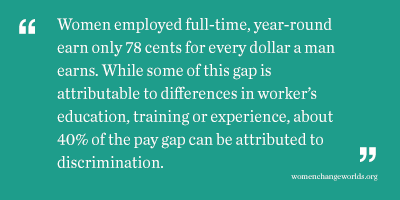 Service occupations, such as maids and housekeeping cleaners, personal care aides and child care workers, are the lowest paid of all broad occupational categories. This disproportionately affects the earnings of
Service occupations, such as maids and housekeeping cleaners, personal care aides and child care workers, are the lowest paid of all broad occupational categories. This disproportionately affects the earnings of 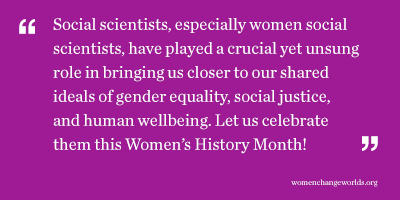 In the mid-1970s, Stanford-based psychologist
In the mid-1970s, Stanford-based psychologist 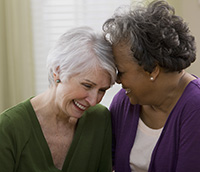
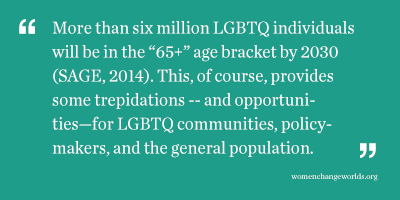 In the last couple of years, more research has surfaced regarding LGBTQ elderly people, which provides a sobering look at their attitudes and thoughts about aging. The first and obvious concern is aging in a society and community that places a high value on youth, leaving the elderly feeling useless and insignificant (Fox, 2007). This is both within the LGBTQ communities and in the general population. Ageism is pervasive in the U.S.
In the last couple of years, more research has surfaced regarding LGBTQ elderly people, which provides a sobering look at their attitudes and thoughts about aging. The first and obvious concern is aging in a society and community that places a high value on youth, leaving the elderly feeling useless and insignificant (Fox, 2007). This is both within the LGBTQ communities and in the general population. Ageism is pervasive in the U.S.
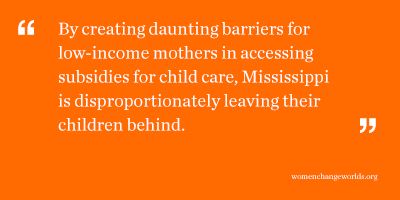 In Mississippi, advocacy for low-income women and children tends to occur only in the non-profit and non-governmental sectors, which are both relatively under-resourced in comparison with other states. No adequately powerful counter-voice exists to offset the public tone of hostility toward low-income women. Further, conscious and sub-conscious racism is so entrenched in Mississippi that even policies that would appear to address racial discrimination turn out to have no impact. Mississippi could be said to be “Ground Zero” for structural racism. So intractable is this form of racism at all class levels that the elimination of
In Mississippi, advocacy for low-income women and children tends to occur only in the non-profit and non-governmental sectors, which are both relatively under-resourced in comparison with other states. No adequately powerful counter-voice exists to offset the public tone of hostility toward low-income women. Further, conscious and sub-conscious racism is so entrenched in Mississippi that even policies that would appear to address racial discrimination turn out to have no impact. Mississippi could be said to be “Ground Zero” for structural racism. So intractable is this form of racism at all class levels that the elimination of 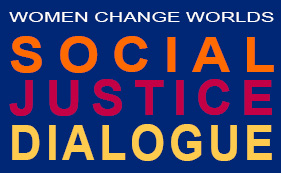 Social Justice Dialogue: Leadership for Social Change
Social Justice Dialogue: Leadership for Social Change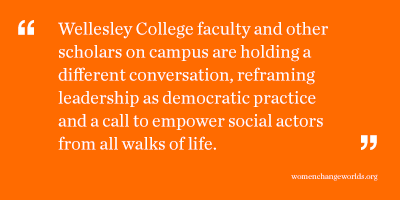 Second, the PPLA explores ways to do teaching and research that is driven by our values. We focus on the kinds of leadership and collective capacity we need to meet the common challenges our society face in a just way. We insist upon rigor and methodological soundness in our work, but we cannot separate moral and ethical considerations from our research and writing. Many scholars believe that our values suffuse our classrooms, laboratories, articles, and books whether we recognize and foreground them or not. The Project on Public Leadership seeks ways to affirm and support explicitly values-driven work.
Second, the PPLA explores ways to do teaching and research that is driven by our values. We focus on the kinds of leadership and collective capacity we need to meet the common challenges our society face in a just way. We insist upon rigor and methodological soundness in our work, but we cannot separate moral and ethical considerations from our research and writing. Many scholars believe that our values suffuse our classrooms, laboratories, articles, and books whether we recognize and foreground them or not. The Project on Public Leadership seeks ways to affirm and support explicitly values-driven work.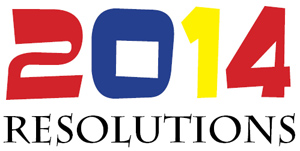
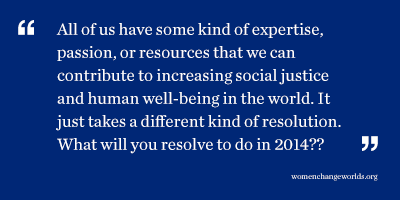 Just because we don’t all work for social change organizations, however, doesn’t mean there aren’t major ways we can make each a difference. What do you care about? What change would you like to see in the world? As great and necessary as organizations are in the social change equation, they are not the end-all and be-all. Individuals and small groups, even when they are working for change outside formal organizations, can make a monumental difference in outcomes for many through partnering, advocacy, endorsement, and financial support. As
Just because we don’t all work for social change organizations, however, doesn’t mean there aren’t major ways we can make each a difference. What do you care about? What change would you like to see in the world? As great and necessary as organizations are in the social change equation, they are not the end-all and be-all. Individuals and small groups, even when they are working for change outside formal organizations, can make a monumental difference in outcomes for many through partnering, advocacy, endorsement, and financial support. As 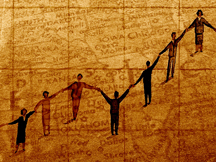
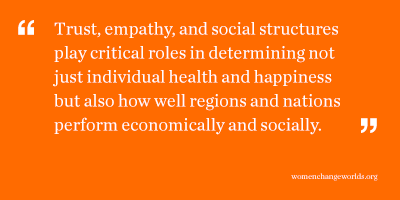 A model for human experience that emphasizes our separateness works against our sense of basic connection and belonging. It leads us to believe that we should function autonomously in situations where that is impossible. By placing unattainable standards of individualism on us, it leaves us vulnerable to feeling even more inadequate, ashamed, and stressed out. There is abundant data that social ties are decreasing in the U.S.; more and more people feel they can trust no one. (Putnam, R. 2000 Bowling Alone: The collapse and revival of American community. New York: Simon and Schuster.) And traditional psychology with its overemphasis on internal, individual problems contributes to our failure, at a societal level, to invest in social justice and social support programs. Rather than addressing the problems in a society that disempower us and perpetuate systems of injustice, we have tended to locate the problems in the individual.
A model for human experience that emphasizes our separateness works against our sense of basic connection and belonging. It leads us to believe that we should function autonomously in situations where that is impossible. By placing unattainable standards of individualism on us, it leaves us vulnerable to feeling even more inadequate, ashamed, and stressed out. There is abundant data that social ties are decreasing in the U.S.; more and more people feel they can trust no one. (Putnam, R. 2000 Bowling Alone: The collapse and revival of American community. New York: Simon and Schuster.) And traditional psychology with its overemphasis on internal, individual problems contributes to our failure, at a societal level, to invest in social justice and social support programs. Rather than addressing the problems in a society that disempower us and perpetuate systems of injustice, we have tended to locate the problems in the individual. 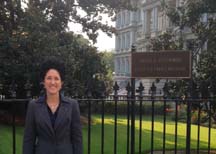 Part II: Social Scientific Perspectives on Making Change in America
Part II: Social Scientific Perspectives on Making Change in America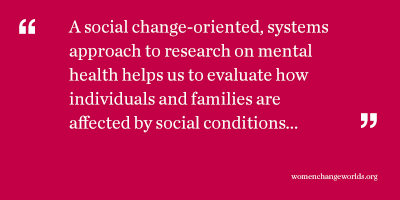 Depression is more epidemic than the common cold, and we hear more and more about such issues as bipolar disorder, post-traumatic stress disorder, and suicide. On the one hand, we have begun to recognize a connection between mental ibellness and certain forms of violence – and while mental illness certainly doesn’t explain all forms of violence in America, it raises our level of concern about why people experience mental illness and whether we are doing enough about it. Fortunately, the Affordable Care Act will make
Depression is more epidemic than the common cold, and we hear more and more about such issues as bipolar disorder, post-traumatic stress disorder, and suicide. On the one hand, we have begun to recognize a connection between mental ibellness and certain forms of violence – and while mental illness certainly doesn’t explain all forms of violence in America, it raises our level of concern about why people experience mental illness and whether we are doing enough about it. Fortunately, the Affordable Care Act will make 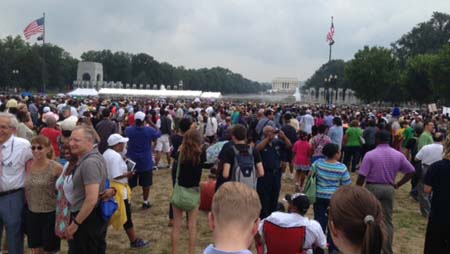
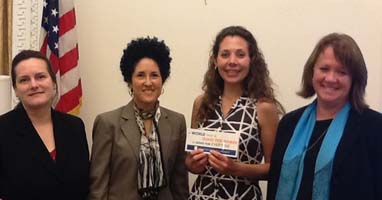 During the flight home, as I reviewed the day’s
During the flight home, as I reviewed the day’s 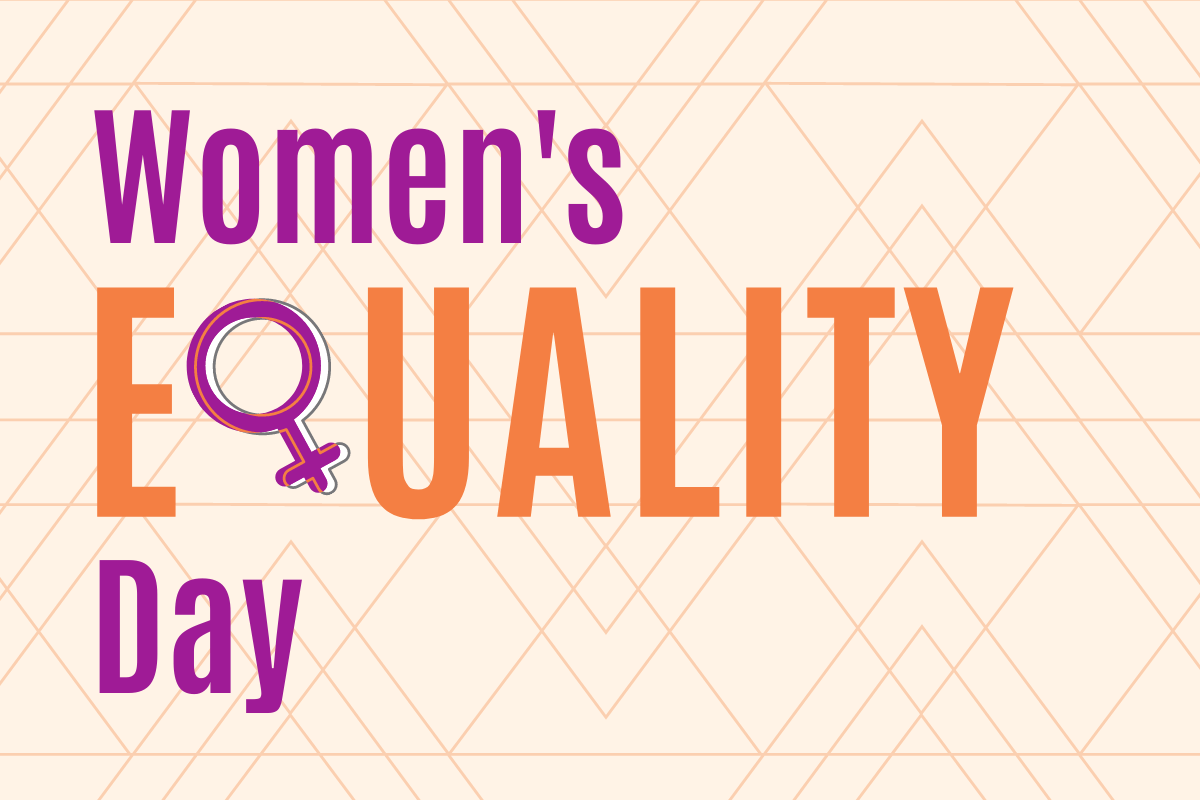
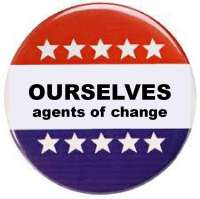
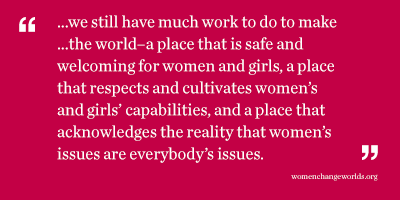 genuinely thankful, on behalf of all of those who came before in many generations, to establish this diverse nation and secure the rights of people of all genders and backgrounds to vote, for those who did exercise that right on Election Day. At the same time, I hope we recognize the need to elect ourselves as agents of change. Now, it is time to roll up our sleeves and get back to work–perhaps with even greater exuberance.
genuinely thankful, on behalf of all of those who came before in many generations, to establish this diverse nation and secure the rights of people of all genders and backgrounds to vote, for those who did exercise that right on Election Day. At the same time, I hope we recognize the need to elect ourselves as agents of change. Now, it is time to roll up our sleeves and get back to work–perhaps with even greater exuberance.